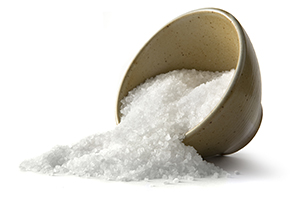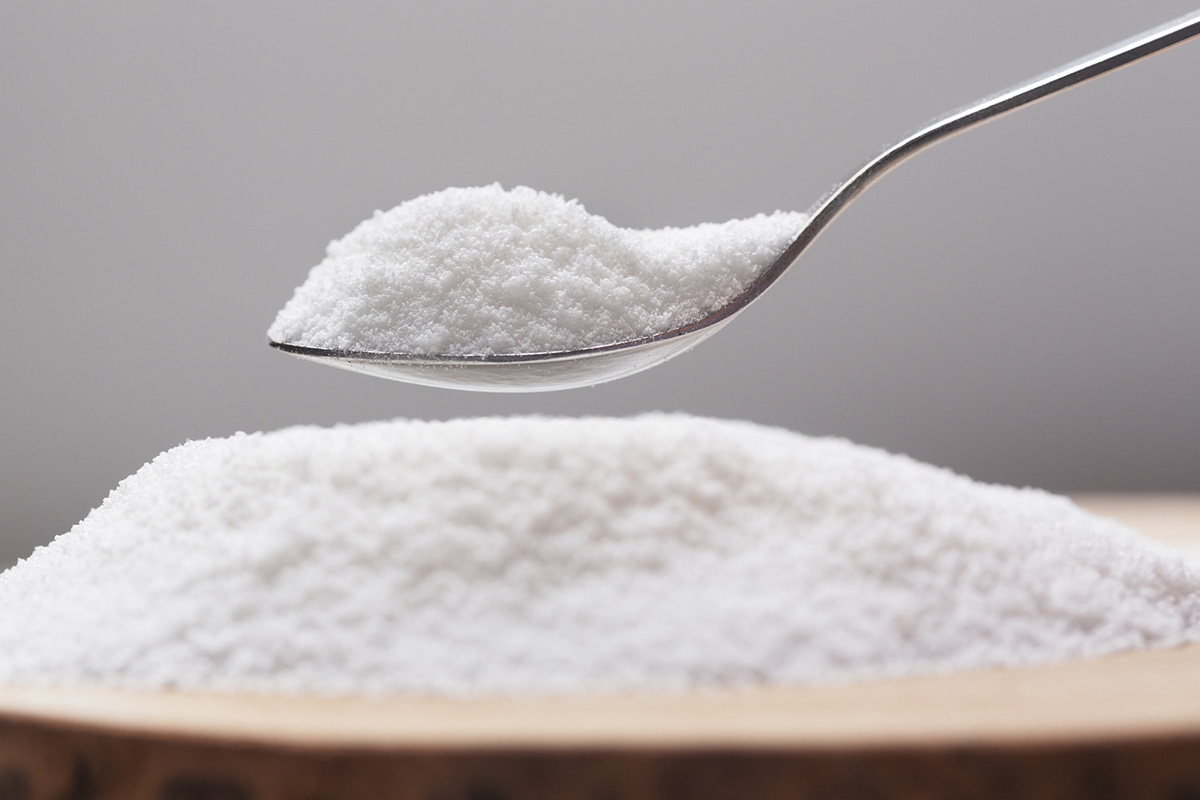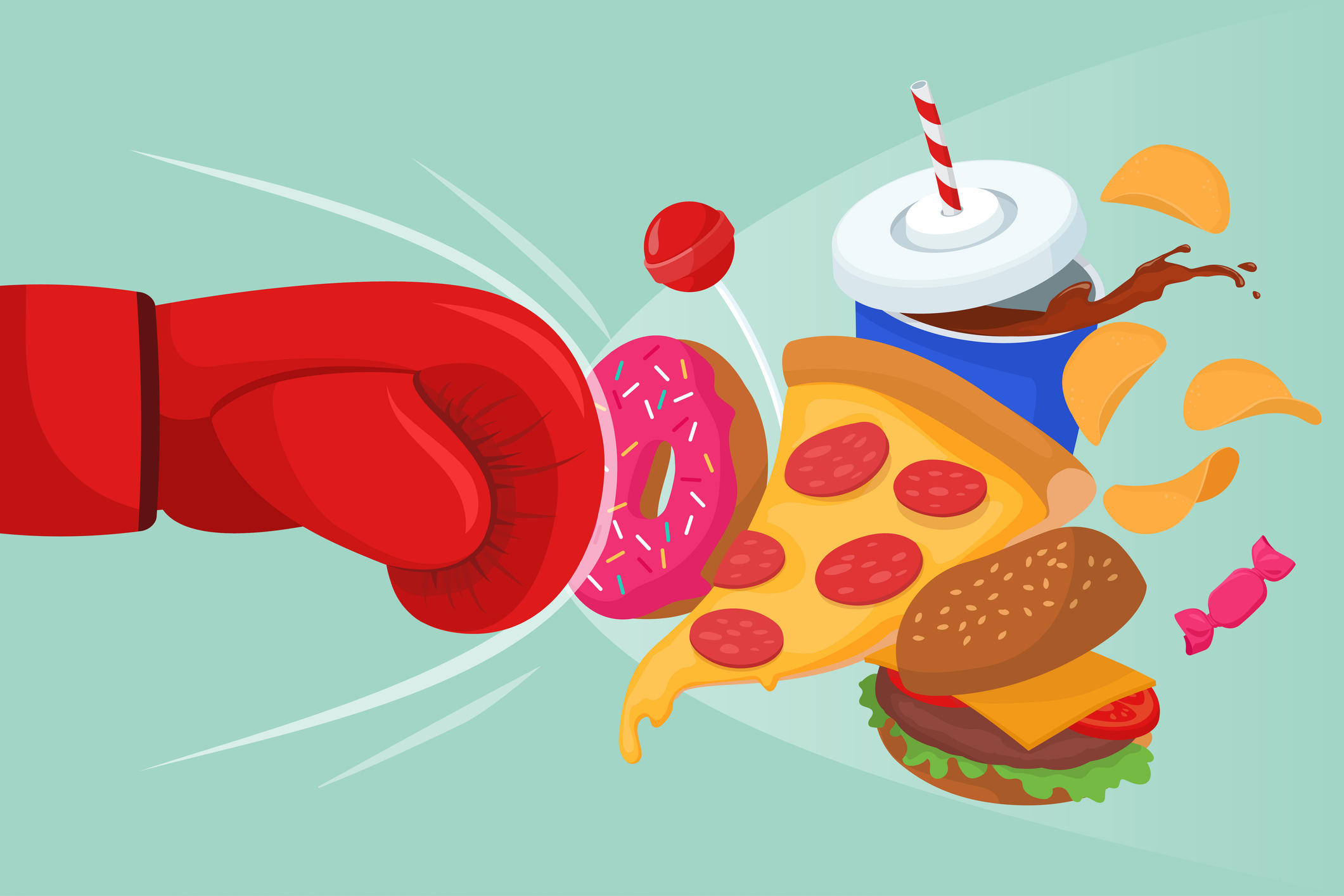I consume lots of salt. I eat sour pickles and sauerkraut. I liberally salt my eggs, meat, poultry and fish. I take seriously the derivation of the word “salad” from the Latin “sal” [pronounced sel], which roughly translated means salted raw vegetables, and so wield the salt shaker aggressively over my lettuce, arugula or kale. And for long bike rides in the heat, I power up with a balanced electrolyte solution rich in sodium.
For the record, my blood pressure is 110/70, and I don’t suffer from heart disease, tinnitus, ankle edema, or any of the maladies for which salt reduction is considered de rigeur. Oh, and I’m 63, another reason invoked for salt restriction because it’s said that older individuals’ kidneys can’t eliminate sodium as well.
This, of course, goes against numerous public health recommendations that are parroted endlessly: The World Health Organization recommends that all adults should consume less than 2,000 milligrams of sodium per day, irrespective of whether they have hypertension. The American Heart Association goes even further, urging Americans to limit their sodium intake to below 1500 milligrams per day (the average American consumes more than 3,400 milligrams per day).
New York City, a pioneer in enacting smoking bans (2003) and trans-fat restrictions (2006) under Mayor Michael Bloomberg, has advanced a new rule that would require city chain restaurants to post an ominous icon of a salt shaker encased in a black triangle as a warning next to menu items that exceed 2,300 milligrams of sodium, the upper daily limit called for by the federal government. The rule, challenged in court by the National Restaurant Association, was recently upheld, and violators will be subject to fines of $200. New York City Mayor Bill DeBlasio hailed the court’s decision on what he called a “common sense” regulation in the public interest.
Clearly, there are instances when sodium restriction is merited. Some—but not all—individuals with hypertension respond favorably to sodium restriction. Persons with compromised kidney function lack the ability to filter excess sodium and may experience dangerous swelling. Many Americans with congestive heart failure must restrict their salt intake to prevent fluid overload (It was said—and this may be an apocryphal story—that, in his 80s, the late James Cagney would often ignore his doctors’ advice and indulge in a corned beef sandwich, precipitating trips to the hospital for emergency treatment of acute episodes of congestive heart failure).
But in medicine, things are often not as straightforward as they seem. A surprising degree of controversy surrounds universal recommendations for a low-salt diet. A recent study is only the latest to raise caution flags.
Previous studies had suggested that a very low sodium intake—less than a gram per day—actually has the paradoxical effect of increasing the risk of cardiovascular death. Why might that be?
A Cochrane review study—considered one of the most authoritative arbiters of scientific evidence—concluded that low sodium intake can significantly increase the production of kidney hormones responsible for raising blood pressure. These hormones are frequently the target of blocking drugs designed to lower blood pressure. This makes sense because, in the absence of adequate sodium, the body mobilizes its defenses against inappropriately low blood pressure and tries to maintain it.
Additionally, low sodium diets can raise catecholamines—fight or flight neurotransmitters like adrenaline and dopamine—that speed the heart and cause the blood vessels to constrict. Catecholamines are what link stress to high blood pressure—the “tension” in hypertension. Indeed, a popular category of blood pressure medication, beta blockers, precisely blunts these chemical messengers.
Finally, some studies suggest that, for unknown reasons, low salt intake prompts an increase in total cholesterol and triglycerides.
The latest study delivers insights into the effect of low-sodium intake on inflammation, an acknowledged predictor of cardiovascular risk. Most are by now familiar with hs-CRP(high sensitivity C-reactive protein) as a determinant of susceptibility to heart attack or stroke. To this, researchers added a novel marker, not yet generally used in clinical practice, called GlycA, a precise indicator of arterial inflammation that is associated with plaque formation.
The investigators discovered that the lower the sodium intake, the higher the levels of hs-CRP and GlycA. Not only were those increased, but so too were IL-6 and TNF alpha, classic inflammatory markers.
The authors of the study speculate that a low-sodium diet triggers compensatory release of renin, angiotensin, and aldosterone. These, in turn, lower blood levels of adiponectin, which, in addition to prompting insulin resistance and weight gain, promotes inflammation.
While this finding should not greenlight indiscriminate sodium intake, it does suggest that we need to hit pause before mandating universal sodium restriction. While certain individuals clearly need to eschew excess salt, most healthy persons may benefit from moderate amounts.
Part of the problem is that studies that show that excess sodium creates health risks are confounded by the fact that highly-processed food—not the salt shaker—is the primary source of sodium for people in advanced countries. Is sodium the real culprit, or is it the refined carbohydrates, chemical additives, poor quality oils and fats, and dearth of fiber and critical vitamins, minerals and polyphenols that team up with salty fare?
One way to head off harmful effects of dietary sodium is to focus not just on total sodium intake, but rather on the sodium to potassium ratio. Adding lots of potassium-rich fresh fruits and vegetables to your diet may offset the harms associated with salt.
Additionally, staying fit and lean eases the impact of sodium on the body. And, it doesn’t hurt to break a sweat regularly to allow your pores to assist your kidneys in ridding the body of its dietary salt burden.








